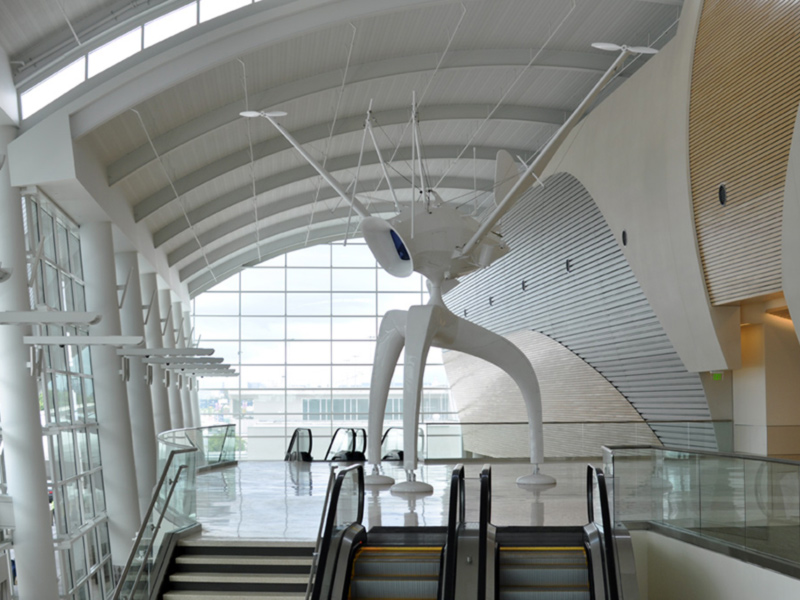
History of SJC
Built From the Ground Up
Although the concept of a San José airport emerged in the 1920s, it took several more years for a small aviation business to break ground on the first dirt runway. Thanks to early innovators such as Bill Hewlett and David Packard, the Santa Clara Valley rapidly evolved from an agricultural powerhouse to a technology and innovation center, and in 1949, the San José Municipal Airport opened for commercial air travel. (A fun bit of trivia: The first commercial flight at SJC transported seven passengers and 2,550 baby chickens!). Today, San José Mineta International Airport – proudly named for former U.S. Secretary of Transportation Norman Y. Mineta – is the premier transportation hub for the innovation economy.



